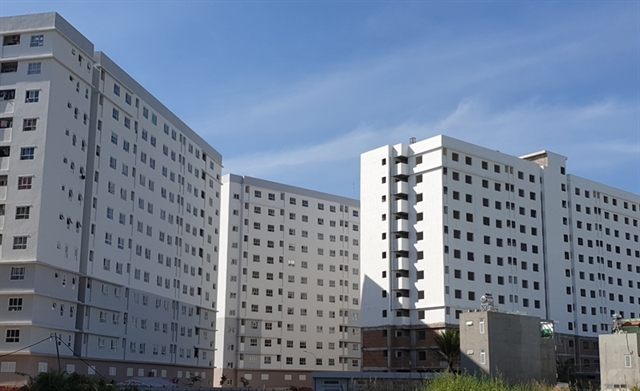 Society
Society

HCM City is expected to need an additional 160,000 social housing apartments in the next decade to meet its rising population and demand for affordable housing, according to the city’s Department of Construction.

|
| Chương Dương Home social housing project in Thủ Đức District.About 160,000 social housing apartments are expected to be needed in HCM City in the next decade. — Photo baoxaydung.com.vn |
HCM CITY — HCM City is expected to need an additional 160,000 social housing apartments in the next decade to meet its rising population and demand for affordable housing, according to the city’s Department of Construction.
The department has asked the municipal People's Committee for approval of a housing development master plan in the 2021-30 period.
The city is expected to have a population of around 11.1 million by 2030, the department said.
The city plans to develop social housing, with a total floor area of four million square metres for about 160,000 apartments. Of the figure, it will need around 1.8 million sq.m of floor space from 2021 to 2025, and 2.2 million sq.m of floor space from 2026 to 2030.
To achieve the targets, the city will ask investors of projects covering 10 ha or more to set aside 20 per cent of their land in each project for social housing.
The city will also give priority to using the state-owned land fund to build social housing.
The housing master plan for the 2021-2030 period sets targets for all kinds of housing, totalling 295 million sq.m, with an average floor area per person of 26.5sq.m.
Apart from the targets set for social housing, commercial housing projects are expected to have a total floor area of 45.2 million sq.m by 2030, including 19.7 million sq.m for the period of 2021 to 2025, and 25.5 million sq.m for the 2026 to 2030 period.
The city also aims to have 59.2 million sq.m of floor area for the individual housing segment by 2030.
To reach the targets, the city will call for investment into development of housing projects under the form of public private partnerships (PPP) through promoting international cooperation, and providing financial assistance.
Bottlenecks in social housing
The demand for social housing in the city is huge, but the current supply is insufficient for low-income earners.
After a social housing project of nearly 1,000 apartments for officials, civil servants and low-income people was built in Thủ Đức District by Chương Dương Corporation, for example, it sold quickly after construction was completed and then was released for sale.
According to Văn Minh Hoàng, general director of the corporation, there is high demand for affordable apartments, but projects face administrative bottlenecks and limitations.
The land area for new housing projects in the central areas has become limited, while projects in suburban districts have faced delays because of administrative procedures.
“Developing social housing is seemingly not of interest to property developers due to unattractive profits,” he said.
Lê Hữu Nghĩa, general director of Lê Thành Real Estate Company, said his company was interested in social housing, but it faced difficulties in construction-related administrative procedures.
He said it took more than one year to complete procedures related to investment policy decisions for the company’s Lê Thành Tân Kiên Social Housing project in Bình Chánh District.
Similarly, Chợ Lớn Real Estate Joint Stock Company has been struggling for years with administrative procedures for social housing projects in District 8.
Several property developers have invested their own capital in social housing projects. They include Nam Long, Thủ Thiêm Investment, Thuận Kiều, Vạn Thái, Thiên Phát, Sài Gòn Res, Hoàng Quân, Phú Cường and Sài Gòn Real Estate Corporation.
They also had to spend money to transfer land-use rights without any support from preferential credit policies.
Lê Hoàng Châu, chairman of the HCM City Real Estate Association, said that shortcomings in social housing policies existed.
“The biggest problem is that the State budget has not been used for allocating funds to implement social housing projects,” he said.
Concessional loans for social housing developers and buyers are still limited, according to the chairman. They are forced to borrow loans from commercial banks at high interest rates, which makes it more difficult for the buyers to repay bank loans.
City authorities need to identify the problems and then develop solutions for social housing so as to meet the rising demand for affordable homes among low-income earners. — VNS